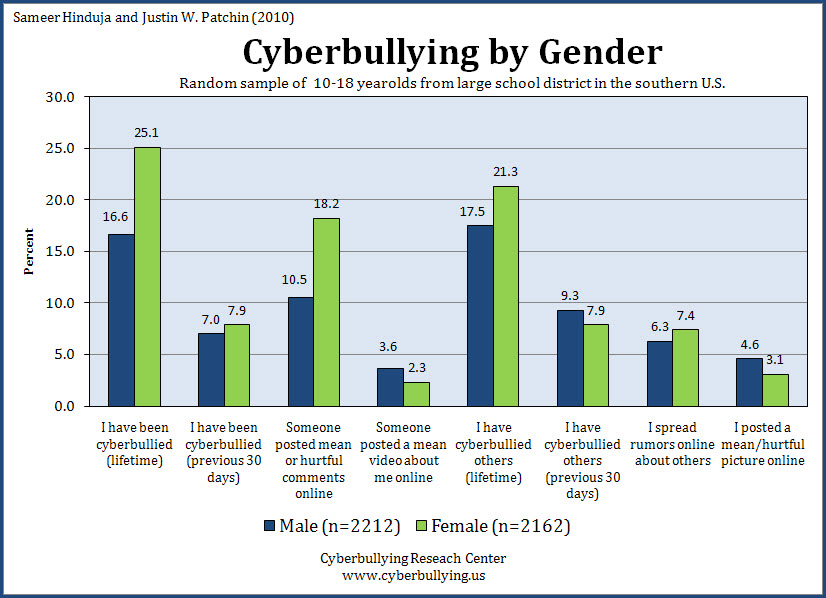He'd been pushed hard up against the wall yet again by a bigger boy in high school.An insightful comment.
The high school bully might enjoy his brief playtime before entering the real world. Soon enough, real life will swallow him. He'll slide into an amoral lifestyle (criminal, business), or he might just suppress it all and waste his years becoming an angry, bitter fellow.
 |
| New on the agenda, cyberbullying. |
Studies show that children who bully tend to be overly aggressive, lacking in a moral compass, and plagued with conflict in relationships. In addition, they tend to associate with bully-backers and others who bully.
 School bullying does not just go away once kids finish school. Instead, it increases the odds of future problems. By their mid-twenties, former bullies have a four times higher rate of criminal behavior than their non-bullying peers. By their mid-thirties, more than half of people who bullied in grades 6 through 9 have at least one criminal conviction. Bullying behavior often continues into the workplace. They'll have more failed or distressed relationships, and antisocial behavior disorders.
School bullying does not just go away once kids finish school. Instead, it increases the odds of future problems. By their mid-twenties, former bullies have a four times higher rate of criminal behavior than their non-bullying peers. By their mid-thirties, more than half of people who bullied in grades 6 through 9 have at least one criminal conviction. Bullying behavior often continues into the workplace. They'll have more failed or distressed relationships, and antisocial behavior disorders.The bully is twice a killer; first in choosing to harm another, and second in destroying their own soul.A practised bully struggles with listening objectively and with compromise. Common inabilities will include loving unselfishly, selfless giving, and letting down the walls. A difficult life of continual distress.
Unless change comes.
School is a child's other world, away from parental oversight where they can be someone else. Today, social media is a similar venue. Children who bully there are at risk with significantly higher probability of following a destructive path. Parents, talk openly with your children about bullying. Catch it early, understand it and deal with it appropriately.
________________________________________________________________________________
For starters, see the PBS article: What to do when your child is a bully
See: Bullying Prevention is Crime Prevention and The Bully's Way Out
See: Bully-proofing your child by Dr. Laura Markham for a first look at insulating your child from emotional harm.
For the studies and statistics, see: School bullying as a predictor of violence later in life: A systematic review and meta-analysis of prospective longitudinal studies, Maria M. Ttofi, David P. Farrington, Friedrich Lösel, Institute of Criminology, University of Cambridge, United Kingdom
See: Bullying and Victimization in Elementary Schools: A Comparison of Bullies, Victims, Bully/Victims, and Uninvolved Preadolescents, Developmental Psychology, American Psychological Association 2005, Vol. 41, No. 4, 672– 682

